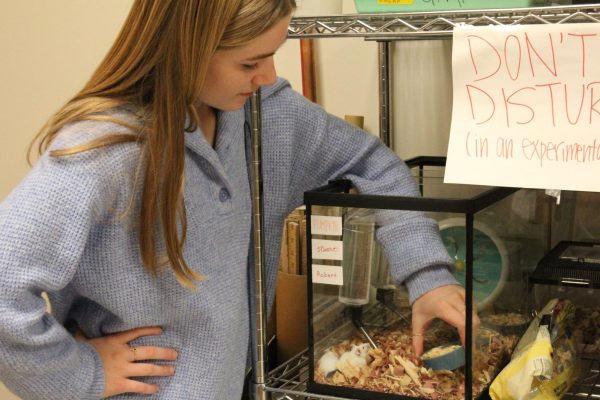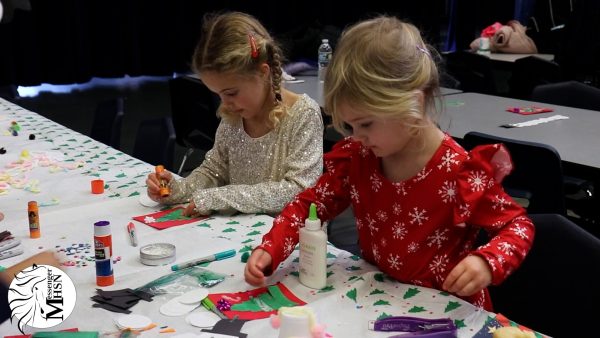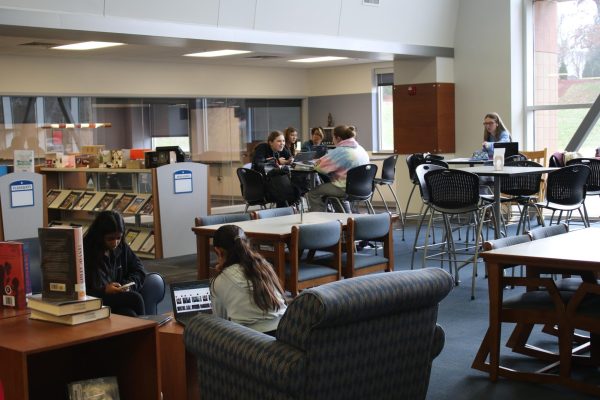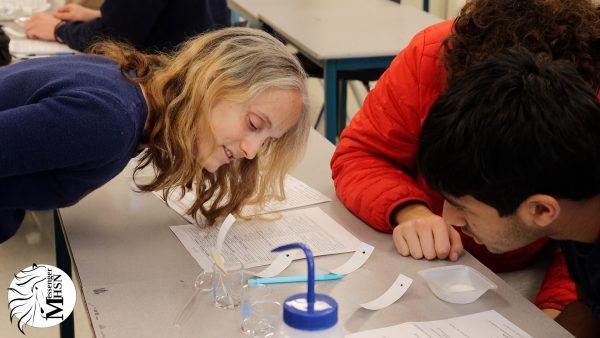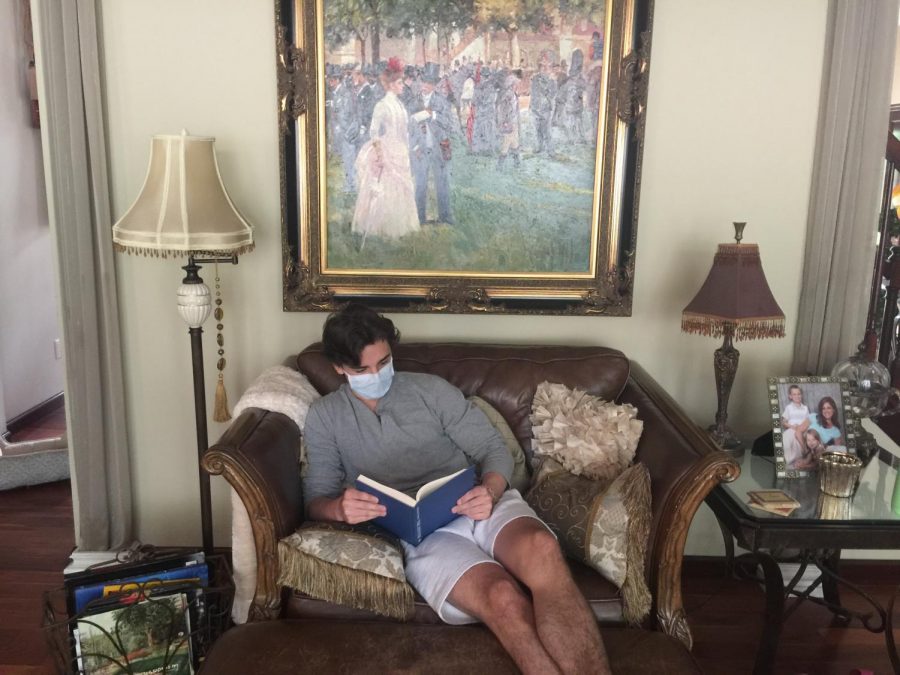Healthcare Workers Continue to Combat COVID-19
Media by Gwendolyn Dodd
Christian Springer, sophomore, reads a book while social distancing in his house.
As coronavirus cases are slowing from their peak, many are hopeful for a return to normalcy. In spite of recent optimism, doctors and nurses are continuing to combat COVID-19.
Dr. Jay McDonald, Chief of Infectious Diseases at the U.S. Department of Veterans Affairs (VA), has been an eminent component in containing the spread of COVID-19. Since the inception of the virus, Dr. McDonald and his team have canceled all regular appointments, surgeries and other procedures to subdue the coronavirus. Instead, these appointments are taking place online, through visits called Telehealth.
“It’s been a really strange time,” Dr. McDonald said. “We’ve had to turn entire hospital wards into specially-designed areas to take care of patients with COVID-19. It is definitely not business as usual.”
Dr. McDonald said half of all doctors and nurses employed at the VA are working from home. For the employees that do come in for work, they must follow a screening check-up to ensure their health and safety.
“People are definitely worried about their own health and their family’s health, which is understandable,” Dr. McDonald said. “I would feel terrible if I caught it [COVID-19] and made my family sick.”
Dr. McDonald said there is a lot of fear and anxiety because there are so many unknowns. Each day the staff tries to assess one situation at a time.
Early on, the challenge for medical personnel was to get the proper equipment and get patients tested. Now, the mental challenge is to try to stay engaged and energetic when patients are suffering, knowing there is still a long way to go in regards to coronavirus.
“It’s also uplifting at times,” he said. “You see ordinary people stepping up to the plate every day, doing heroic and inspiring things. People putting themselves in danger to take care of other people. So, on one hand, it’s scary, but on the other hand, it can be kind of exhilarating.”
Dr. McDonald said it’s important not to let work affect one’s home life. When he has a difficult day, his 30-minute commute from work gives him time to focus on the positives and suppress the negatives.
At a different hospital, Gwendolyn Dodd, anesthetist, has been experiencing similar complications. Dodd works for Barnes Jewish Hospital’s First Line COVID Call.
Dodd said there has been a sense of coming together among staff, despite the stressful environment they are put in. For example, Dodd said many staff members have been open to working in areas necessary for the greater good.
However, this amity has not put a damper on the pressure, tension and anxiousness present within the hospital. Dodd said the unknown and anticipation of the virus worsening has created an entirely different element to add to one’s stress.
“We are trained for stressful situations; however, nothing prepares you for the unknown and everyday wondering if you’ll be exposed and [be] the next one on a ventilator,” Dodd said.
For Dodd, this isn’t her only worry.
“The true fear is bringing the virus home to one’s family,” she said.
When Dodd arrives at home, she takes a multitude of precautionary steps to avoid the possibility of spreading the virus.
“I undress in the garage, take a shower, wash my clothes and socially distance myself from my loved ones,” Dodd said.
Christian Springer, sophomore, is Dodd’s son. Springer said coronavirus has added to the many obstacles already present in teenage life.
“It’s hard not seeing my friends during this time,” Springer said. “Because I have very close relationships with friends, I’ve tried to go to parks and other places to social distance. But I definitely have to take more cautious measures.”
Springer said the time alone has been beneficial in many ways, but it is also cumbersome. Springer cannot see his friends regularly, and, with the absence of Dodd, must take on more responsibility.
“With my mom getting home later, it definitely sets back when we have dinner and that’s been hard, considering we make it a point to eat as a family,” Springer said. “It’s even more difficult to figure out when she’s getting home because there are so many unknowns. Sometimes it might be in the early morning, but we won’t know because she is working tirelessly at the hospital.”
Since the emergence of COVID-19, Springer said apprehension and worry have played major roles in the quality of life during the quarantine. He recalls losing sleep and anxiety developing.
“I know that this is a hard time for all of us affected by the virus,” Springer said. “For me, it’s important to remain positive through the most difficult times. Even if I have experienced anxiety, it shows that I’m human. And we are all in this together.”
Your donation will support the student journalists of Marquette High School. Your contribution will allow us to purchase equipment and cover our annual website hosting costs. You may become a PATRON by making a donation at one of these levels: White/$30, Green/$50, Blue/$100. Patron names will be published in the print newsmagazine, on the website and once per quarter on our social media accounts.
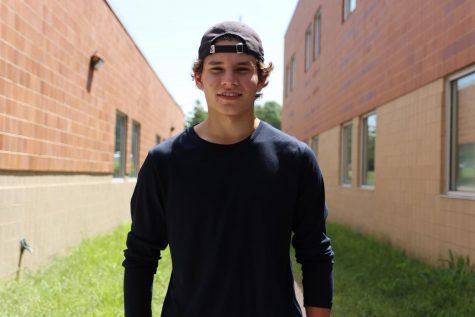
Carter Van Buskirk (he/him), senior, is a staff reporter for the Messenger. Carter plays varsity soccer for MHS. He is a board member for the sophomore...



